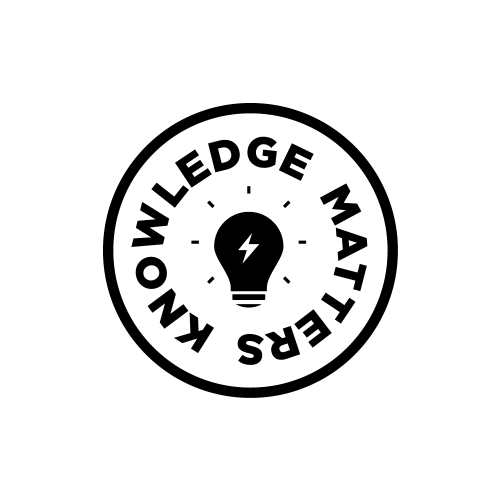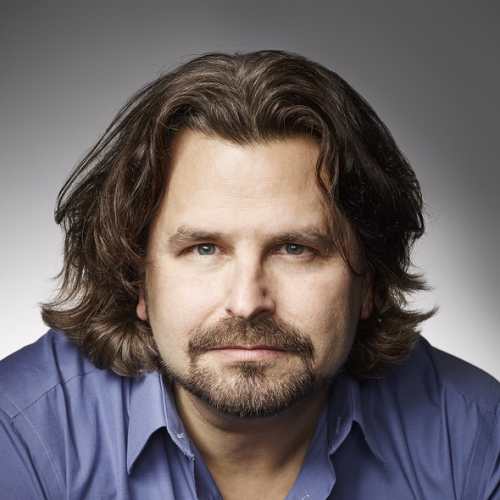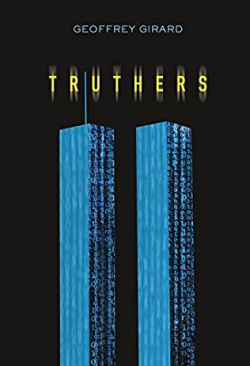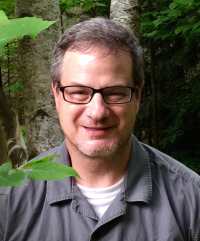The Alternative Truth is Out There; 'Truthers' Examines Roots of Conspiracy

Conspiracy theories are perpetual motion machines. If you don’t believe them, you are either part of the conspiracy or have been duped by it. Either way, all it takes is some random person—everybody from your uncle to the president of the United States—to put a made-up “fact” out there, and the machine chugs along on its own fuel.

Now, in the case of the government, lies have so long been a part of daily business, any wild conspiracy theory can “sound plausible.” Further muddying the waters of truth is that the conspiracy theorists are now in charge of the same US government that has conspired to manipulate truth. They, in turn, have taken this concept of “alternative facts” to new heights.
Yes. Circles within circles, and it hurts my head.
It’s also the stuff of great fiction. That’s why we’re beginning our #KnowledgeMatters month with an interview with Geoffrey Girard, whose book Truthers was just released by Carolrhoda Lab. The book weaves 9/11 conspiracy theory into a great thriller for young and older adults alike. We talked about the book and the general quest for knowledge and truth.
You are also a teacher. As you know, kids are exposed to all kinds of conspiracy theories on the Internet and come back with questions. At least, mine do. What do you tell them?

Geoffrey Girard: 'There's not much I take as a fact/truth anymore. There are just... interpretations.'

First thing I explore/ask is their reaction to what they read/saw. Okay, so you read conspiracy X or conspiracy Y. What did you think of it? Beyond the “weirdness” or “fun” of it, did it make sense to you? How did its implications make you feel? To first separate the conspiracy theory from entertainment. If all I get is: “Well, I just thought it was cool,” then it was a flyby amusement and taken no more seriously than a cute pic of a kitten doing something silly. Which is fine. If, however, students show more interest than that, it’s on to a discussion of sources. Where is this info you found coming from? Have you verified with other sources? How legit are they? What do opposing sites/views claim?
The web is remarkable and important because it puts everyone at an equal level; it’s also a nightmare because it puts everyone at an equal level. And, while the opinion of some [generic person here] about global warming should NOT be taken with as much seriousness as an article written by some PhD who served for several years on the Intergovernmental Panel on Climate Change; on the web, it very often is. What gets complicated is that sometimes info from the [generic person here] is more accurate than whatever the official story is. For instance, during “riots” (CNN, Fox), I often follow Twitter for a “more-real” account of what’s going on at the street level, what real people are experiencing, wanting, etc.
Personally, I’ve always been a rabid truth hunter. And “the truth” always meant more to me than any actual consequences, judgments regarding, etc. Perhaps as a result of writing Truthers, I’ve recently joined the philosophical school of: There is no truth. Looking for it still has great value, but there’s not much I take as a fact/truth anymore. There are just… interpretations. I defer to Plato, Descartes, and Rand to better continue that line of thought. But, bringing it back to the students and my own solution: How did this “truth“ you discovered make you feel? And, so then, what – if anything – might you do about it?
Is one point you’re trying to make in Truthers that the US government has lied so much in the past, these lies actually encourage wild conspiracy theories?
All governments lie; and have since some Neanderthal chief told the tribe “Everything’s good!” and then later turned to his/her #2 and whispered: “Shit, I think we’re all gonna starve.” More and more, we’re just aware of it. Reports get declassified (Thank you, democracy). Reports get leaked (Thank you, Wikileaks, whistleblowers, etc). If you’re a whistleblower in 1400, where are you going? In 1990, maybe you get on 60 Minutes. In 2017, you could have everything you have/know shared “with the world” in a single post. And that’s going to encourage conspiracy theories because it confirms that stuff DOES go on behind our backs. There ARE backroom deals. There ARE shitty/selfish/greedy people doing stuff we don’t know about—but then, one day, we know about it.
Thus, in 1958, per the American National Election Study, 73 percent of Americans “trusted their government.” In 2015, that number was 13 percent. I’m not sure I want to know what that number is today. Fact (per declassified docs): the CIA proposed to Kennedy that the USA shoot down a USA plane of tourists and then blame the Cubans to start a war with Cuba. Clearly, Kennedy declined. Is it really so absurd to believe, then, that a similar idea was proposed again in 2001? Was 1962 the last time someone came up with some dark twisted conspiratorial crime to achieve some “greater good”/agenda? Of course not.
So, in this strange age where we have more access to info than in human history and—at the exact same time—our governments classify and hide more info than ever before, there’s plenty of room for speculation and… theory.
Do you have any thoughts now on the surreal situation in Washington, where the conspiracy theorists are actually in charge of the government? Are worlds colliding?
One of the comforting things I found during my research is that nothing is new here. In 1835, someone tried to kill then-president Andrew Jackson. Guy pulled two guns, and both misfired; the failed assassin was insane, declared insane, and locked up. The end. Rather, within a week, there were sworn affidavits from witnesses who swore they saw this man coming out of the house of a Mississippi senator (and Jackson opponent) and pro-Jackson papers ran with this story hard.
The anti-Jackson papers? THEY now had witnesses to support that idea that Jackson’s party staged the entire event—that the guy was working with Jackson, thus the misfires—to discredit the other party and garner support for Jackson across the country at the same time. A decade later, folks now had new evidence to blame the South and pro-slavery types. Convenient, with the Civil War coming and all.
The Clintons were decrying the “vast right-wing conspiracy” in 1998, an infamous word choice, but more nothing-new. Bill was up to some shenanigans, and the opposing party did want to knock him down a few pegs. The young baby boomers are in charge now. An iconoclastic group, the “Don’t-trust-anyone-over-30” group. Not surprised at all the finger pointing—for either side.
What was your goal in creating a piece of fiction about conspiracy theories surrounding 9/11?
As a teacher, I see/hear what my students are interested in. 9/11 was fifteen years ago, and for 95 percent of them, the only thing they know (or care) about 9/11 is the conspiracy stuff. That’s what’s interesting to them. Soon as I know a younger person is interested in something, that becomes my path to including other/new topics and ideas: history, connections to current events, bigger concepts of theme, self-reflection, etc. 9/11 deeply changed our country; the way we do things and look at each other and the world. Like a giant rock dropped and there’s this ripple that just keeps growing out, to affect people who, as you say, weren’t even alive when the rock originally fell.
My hope/aim was always to introduce young adults to that important day and perhaps get them thinking about how we get our info and how they might form some idea of “truth” in a world of “alternative facts” and “fake news” and “post-truth politics,” etc. I’m glad these terms came into popularity after Truthers was written, but that’s a huge part of what the book is exploring. Which may sound terribly nuts and bolts, but I’m kinda revealing the man behind the curtain here some. Truthers is a thriller with a great, I think, main character. I’m hoping her “conspiracy story” forms a bridge to a bigger journey for readers, as they consider the world around us today and some of the forces that shape it.
Is Truthers a mystery? A thriller? One of those YA books that appeals to adults, too? All of the above?
I’ll use some plugs here. YA Books Central reviewed it as: “History, mystery, romance, action, and intrigue–all in one!” Works for me. Publishers Weekly called it “a fast-paced nail-biter with a resourceful heroine, packed with surprises that force readers to question every revelation and take nothing at face value.” So… hopefully, a little bit of something for everyone. Getting the 9/11 history right for my younger readers was important (most of current students weren’t alive when 9/11 happened). But the book needs to work as a fun thriller/mystery also. Adults read YA novels as much as teens, so I certainly tried to satisfy both groups. I plan to promote to both readerships. (Which I don’t usually for my YA books.)
What is truth?
Ha. Seek truth and you will find a path …

Howard Lovy is executive editor at Foreword Reviews. You can follow him on Twitter @Howard_Lovy
Howard Lovy
